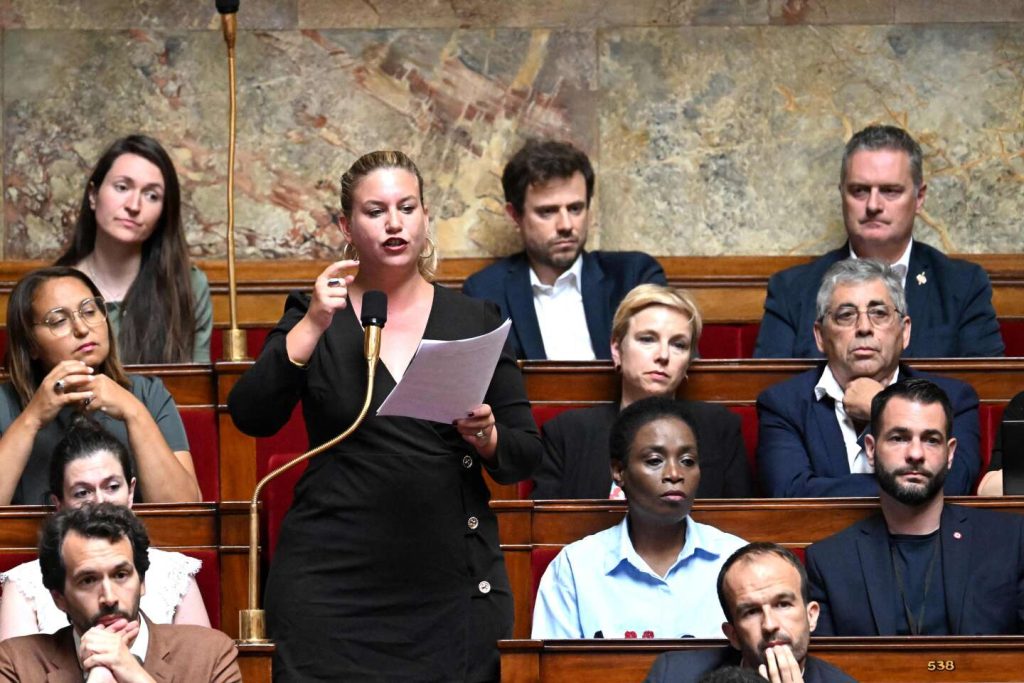Rima Hassan, the candidate of La France insoumise (LFI) for the European elections, and Mathilde Panot, the president of the LFI group in the National Assembly, were questioned by the Parisian judicial police on April 30 for allegations of “apology for terrorism” related to comments made in connection with the conflict between Israel and Hamas. The investigation focused on statements made online between November 5 and December 1 by Hassan, a Franco-Palestinian activist, and an official communication by the LFI group on October 7, the day of the Hamas attack on Israel, which referred to the offensive as a response to Israeli occupation policies.
A gathering organized by the LFI party took place outside the police headquarters in Paris on the same day of the interrogation, where Panot questioned the use of anti-terrorism methods against political activists, association members, and unionists. The concept of “apology for terrorism” has its origins in the law on freedom of the press, initially introduced in 1881 to punish individuals provoking crimes against the state. Over time, the law has evolved to encompass acts glorifying terrorism, with penalties increasing in severity, especially with the focus on online communication post-2014.
The application of the “apology for terrorism” law has been a subject of controversy, with critics arguing that it is being misused to silence dissenting opinions rather than targeting genuine threats. Since the Hamas attack on October 7, there has been a significant increase in legal actions related to this offense, with many individuals being summoned for questioning by the police. The majority of cases are still under investigation, but some have resulted in convictions, sparking debate about the purpose and interpretation of the law.
Legal experts and activists have raised concerns about the broad and subjective nature of the “apology of terrorism” offense, warning that it could potentially infringe on freedom of speech. They argue that criticizing the actions of a state, such as Israel, should not automatically constitute support for terrorist activities. Politicians, campaigners, and legal professionals have called for a more nuanced approach to interpreting and applying the law to avoid curtailing legitimate discourse on sensitive political issues.
The use of the “apology for terrorism” law to target individuals expressing opinions on the Israeli-Palestinian conflict has sparked criticism both within and outside France. Concerns have been raised about the politicization of the legal system to suppress dissent and debate, with calls for greater clarity and transparency in the enforcement of anti-terrorism legislation. Organizations like Amnesty International have highlighted the potential risks to freedom of expression posed by such laws, urging for a reevaluation of their scope and application to safeguard democratic principles and civil liberties in France and beyond.


